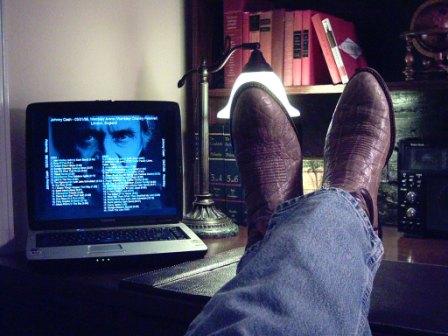HIDING YOUR EGYPTIAN
"He looked this way and that, and seeing no one, he
struck down the Egyptian and hid him in the sand."
Exodus 2:12
I must confess that I've never seriously cogitated over Moses killing the Egyptian in Exodus 2. It's one of those things in scripture that, to be honest, I zip through rather quickly because I'm anxious to move on to the more pertinent aspects of the story. In a recent reading of this passage an entirely new (to me) idea came to my mind, and I saw Moses in a different light. I did not see him flexing his pre-Deliverer muscles to nobly rescue a fellow Hebrew from a mean, nasty Egyptian taskmaster. On the contrary, I saw Moses committing a transgression - noble intentions notwithstanding - and trying to cover his transgression in the process. I make no claims to original thinking here, but it is worth considering.
I do not know the depth of Moses' relationship with God at this time or if he possessed a Messianic ambition to lead Israel out of Egypt. What is evident is that He identified with his people - despite living in Pharaoh's house instead of Hebrew slave dwellings - to the degree that he was willing to murder for them.
So, what is the point here? The point is that although Moses may have felt justified in murdering this Egyptian, he had enough conscience to know that this was wrong, at least in the eyes of Egyptian law. That's why "He looked this way and that, and seeing no one, he struck down the Egyptian."
All Christians sin, and occasionally we try to justify or blame our sins on bad people and/or bad circumstances. I don't know if Moses felt such a need to justify his actions, but I suspect that witnessing the brutal beating of a fellow Hebrew stirred up an anger that may not have been altogether wholly righteous. There are times which do call for righteous anger as David evidences numerous times in his Psalms, but I don't know if that is the case with Moses here. One thing in this context stands out to me: that unrighteous and/or uncontrolled passions/emotions can deceive us to the point where we justify our sin.
Adding insult to injury, sometimes we sin when we think no one else is looking, conveniently forgetting that God sees it all regardless. Did Moses think about God watching him? He might have, but I think it more likely that he was so focused on retribution that if it did cross his mind, it was only for a nanosecond.
I'm convinced this happens when we try to hide our own "Egyptian." We shut God out of our minds and worry more that someone will find us out and expose our secret. So we try to make sure no one knows about our sin before heading to the nearest sand dune. The problem - as Moses found out - is that we can't always account for everybody and every cirucumstance no matter how smart we think we are. I can't speak dogmatically, but I suspect that even with his "Egyptian" hidden in the sand, Moses was looking over his shoulder every waking minute. And if we've ever found ourselves in this situation, we have done exactly the same thing. We may think we're safe, but the thought runs through our mind that maybe, just maybe, we haven't covered all the bases. And if enough time passes, we may deceive ourselves - despite our consciences - that we've succeeded in getting away with it.
The good thing is that Moses didn't get away with it, and in the process learned humility- albeit the hard way. It looks like he wanted to deliver Israel by his own strength, but he sinned by murdering an Egyptian and then by trying to cover his sin up. God had to humble him, and at the end of 40 years Moses was the man God wanted to lead Israel out of Egypt.
Like with Moses, God loves us enough to expose our sin to others when necessary. And as difficult as that might be, we should remember that He can use our sin to humble us and shape us into the person He wants to use for His glory.

